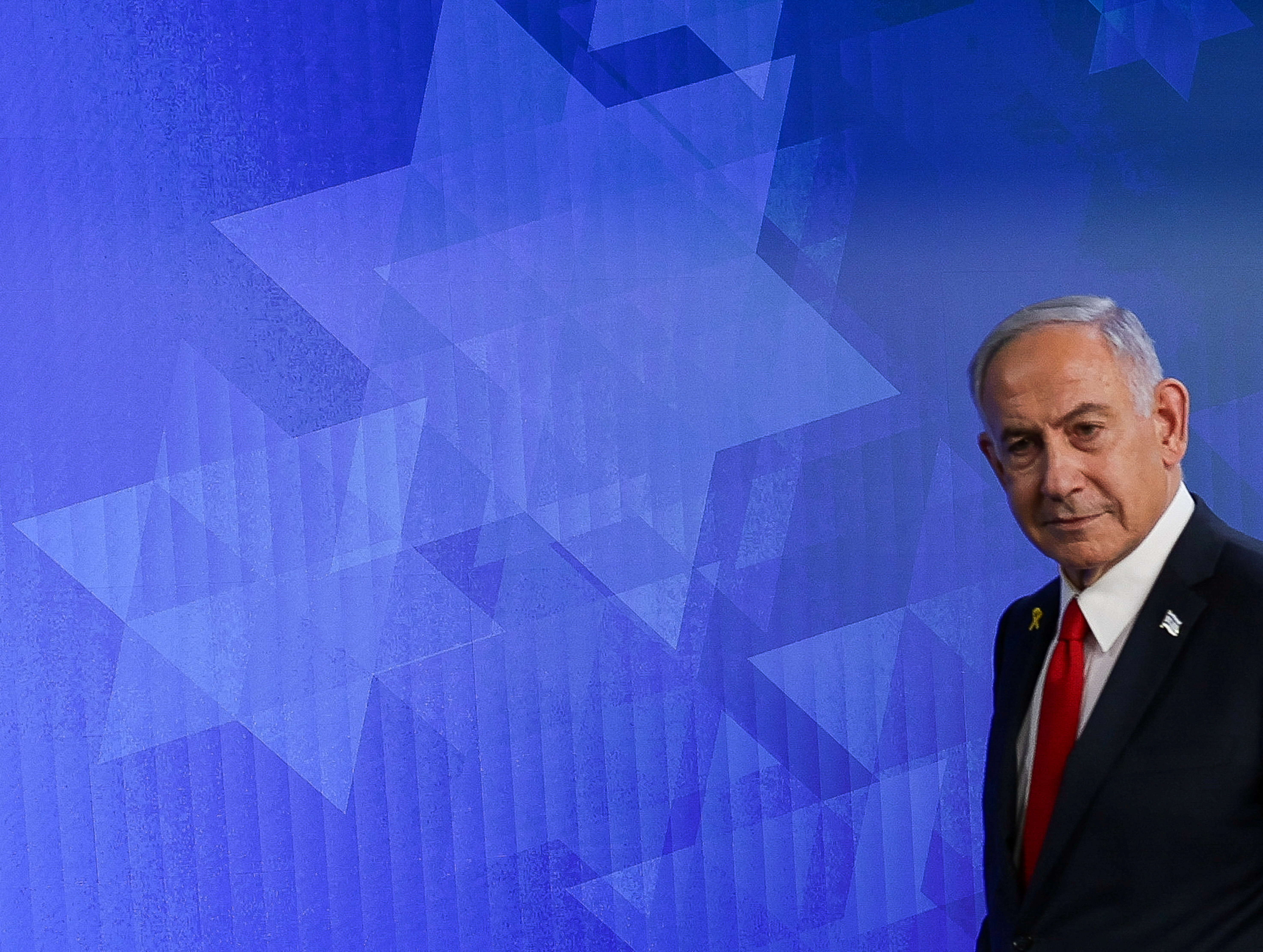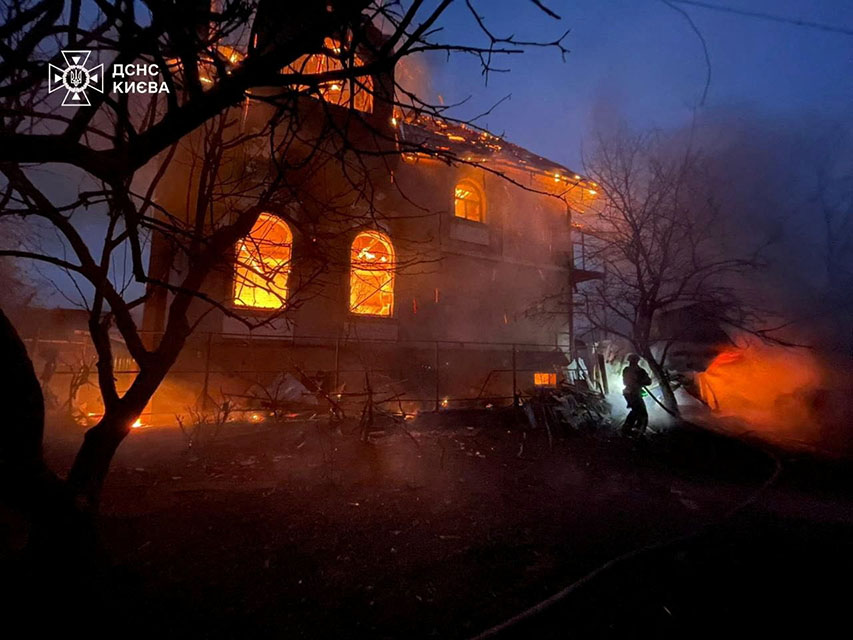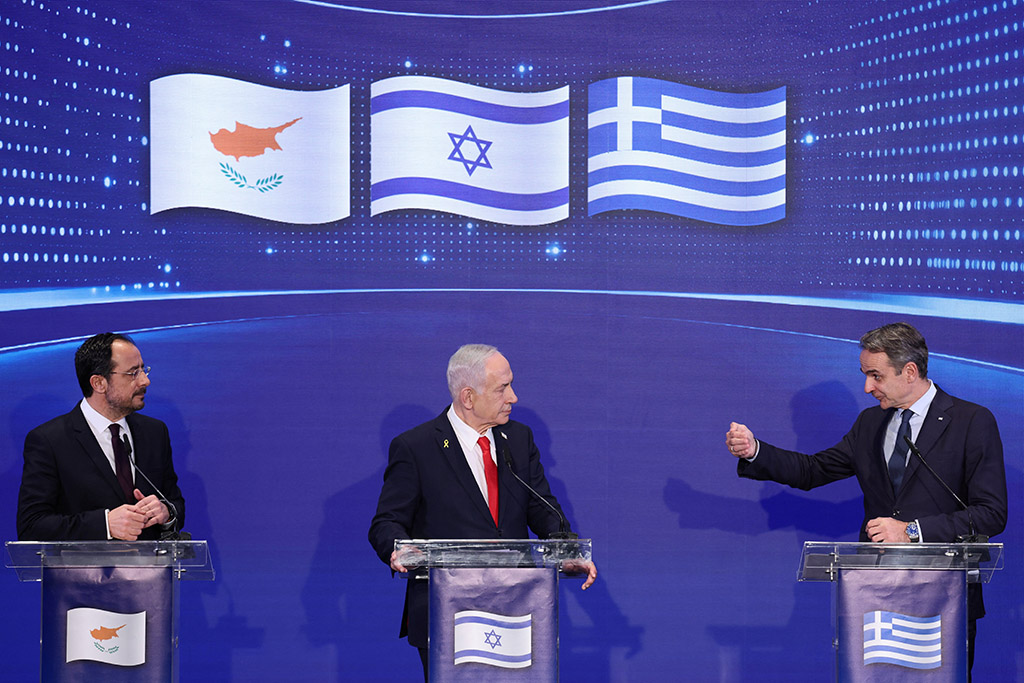Israel and the Armenian, Assyrian and Greek genocides
by Euripides L Evriviades
Prime Minister Benjamin Netanyahu’s recent interview with Patrick Bet-David on August 26 declared that Israel had recognised the Armenian genocide. “I think we have. I think the Knesset passed a resolution to that effect… I just did.” As expected, his statement went viral.
But it was not accurate. Israel has neither passed a law nor adopted a government decision formally recognising the genocide of Armenians – nor of Assyrians or Greeks – carried out by the Ottoman Empire during World War I. Netanyahu’s statement was symbolic, not legal. His personal recognition matters, but it does not change state policy.
The record is clear. Over the years, motions were tabled in the Knesset to recognise the Armenian genocide. They often coincided with periods of tension in Israel-Turkey relations. When ties soured – for example after the 2010 Mavi Marmara incident – the issue resurfaced in Jerusalem. When ties improved, the motions receded.
The closest Israel came to recognition was in August 2016, when the Knesset’s education, culture and sports committee issued a declaration recognising the Armenian genocide and calling on the government to follow suit. But this was a committee statement. It had no binding force.
In 2020, then-opposition leader Yair Lapid again urged the government to recognise the genocide and backed legislation to that end. The debate took place but never reached a binding vote.
That is the pattern: symbolic gestures, debates, committee resolutions and motions, but never a decision by the Knesset or by the government of Israel.
Why the hesitation?
First, realpolitik. For decades, Turkey was Israel’s closest ally in the Muslim world. Military cooperation, intelligence sharing, trade and arms deals bound the two states together. Ankara made it clear that recognition of the Armenian genocide would cross a red line. Successive Israeli governments were unwilling to pay the price.
Second, Azerbaijan. In recent years Baku has become a vital partner for Israel. Energy supplies, arms contracts and intelligence cooperation against Iran make the relationship strategically important. Azerbaijan is also a close ally of Turkey, whose military and political support was decisive in Baku’s recent victories over Armenia. It strongly rejects recognition of the Armenian genocide. Israel has had no interest in upsetting that relationship.
Third, the politics of memory. Within Israel there has long been unease about equating the Holocaust – the Shoah – with other genocides. Some fear that recognising the Armenian genocide might dilute the uniqueness of the Holocaust in global discourse. Others argue the opposite: that recognition would strengthen Israel’s moral standing. This debate has never been fully resolved.
Fourth, alignment with Washington. For many years the United States also avoided recognition, largely out of concern for relations with Turkey, a Nato ally. Israel often tracked Washington’s position. Only in 2019 did the US Congress adopt resolutions recognising the Armenian genocide. Only in 2021 did President Biden use the term officially. By then, Israel had already entrenched its caution.
Israel today remains a notable holdout. More than 30 countries including France, Germany, Italy, Russia, Canada and the United States officially recognise the Armenian genocide. The European Parliament has done so as well.
Recognition of the Assyrian and Greek genocides is less widespread, but not absent. The parliaments of Sweden, the Netherlands and Austria have recognised all three. Germany’s 2016 Bundestag resolution refers explicitly to “Armenians and other Christian minorities”. Greece, naturally, has legislated remembrance for the Pontic Greeks (1994) and for the Greeks of Asia Minor (1998). Cyprus was among the first to recognise the Armenian genocide (1975), later criminalising its denial (2015), and has also legislated remembrance for the Greek genocides. In France, the Senate (2023) and the National Assembly (2024) adopted resolutions recognising the Assyro-Chaldean genocide and calling on the government to act. Israel, a state born in the aftermath of genocide, has not joined them.
The irony is obvious. The Jewish people know what it means to suffer genocide. They know what it means to live with denial. Holocaust survivors and Jewish intellectuals have been among the strongest advocates for Armenian recognition. As Elie Wiesel warned: “To forget the dead is to kill them a second time.”
In Jerusalem, there is an Armenian Quarter. The Armenian presence in the Holy Land is ancient. Armenians, Assyrians and Greeks share a history of Christian witness and martyrdom under Ottoman rule. Their descendants live among us. And yet, as a matter of policy, Israel has remained silent.
Does Netanyahu’s recent statement mark a change? It is hard to say.
On one hand, it may be seen as a personal gesture; a prime minister choosing words of recognition even if his government has not acted. That has symbolic weight. Words do matter.
On the other hand, it may prove to be another passing moment, like earlier committee votes or parliamentary debates. Without formal government recognition, policy remains unchanged.
Why does recognition matter? Some argue that history is history, and nothing changes with words. That is short-sighted.
Recognition is about truth. It is about memory. It is about refusing to allow denial to triumph. When states speak plainly about past crimes, they affirm the dignity of the victims and the moral health of the present.
Recognition is also about consistency. Israel rightly insists that Holocaust denial is intolerable. How then can it avoid naming another genocide? Silence undermines the universality of the lesson “Never Again”.
Finally, recognition is about diplomacy and not the transactional kind that uses genocide as a bargaining chip. It is about moral diplomacy: setting a standard that transcends shifting alliances and temporary interests.
Netanyahu’s words may be remembered as the moment Israel began to change course. Or they may be forgotten, like earlier gestures. Policy still waits for a Knesset resolution or a government decision. Until then, recognition remains deferred.
Some will argue that Israel itself faces grave accusations of genocide in Gaza. That is a separate and ongoing debate, and it should be addressed on its own terms. But it does not lessen the moral duty to speak clearly about the past. Recognition deferred is recognition denied.
For Israel, to acknowledge the Armenian genocide, and the fate of Assyrians and Greeks alongside it, would not only honour the victims. It would also reaffirm Israel’s own story: that memory matters; denial kills; and truth is the strongest foundation of diplomacy.
Euripides L Evriviades is a former Cyprus ambassador to Israel, the Netherlands, the US and High Commissioner to the UK. Currently, he is a senior fellow at the Cyprus Centre for European and International Affairs, University of Nicosia







Click here to change your cookie preferences